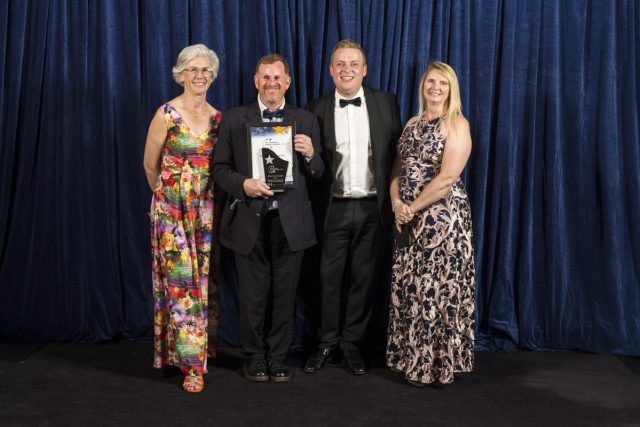
Losing his sight at a relatively young age has never stopped Ryan Honschooten from doing anything he ever set his mind and heart to.
As a baby he developed eye cancer (retinoblastoma) which resulted in the loss of his eye sight before the age of three but the Gosnells resident always lived his life like any sighted person would and never saw his vision impairment as an excuse.
Now 43 Mr Honschooten has been recognised for his dedicated volunteer work as a youth support officer with VisAbility after being awarded the Excellence in Supporting Social Inclusion Award at the 2019 WA Disability Support Awards on May 11.
Nominated for his work over several years as a mentor to young, vision-impaired people Mr Honschooten said was humbled to have been nominated but his own rewards were priceless in themselves.
“It’s very overwhelming to have even been considered for the award but my rewards are seeing the kids succeed like if one gets a job or one of them catches the train all on their own,” he said.
“It sounds easy for some but for us vision impaired people those sorts of things are not always easy.”
Mr Honschooten’s role as youth support officer includes working with children aged five to 18 as well as their parents to encourage, nurture and assist in their life’s journey.
He organises school holiday programs where those he mentors not only gain more independence and social skills but also get a chance to participate in activities like kayaking, sailing, abseiling and rafting.
“It’s not about getting them to go to university or TAFE it’s about asking the question, ‘How are you going to get there?’ in terms of have they learnt what buses or trains to take,” he said.

“And the school holiday programs allow them all to do the same things sighted kids can do because we can support them with extra staff and things like that.”
Currently Mr Honschooten is mentoring about 50 children and that is not only in Perth but across the country.
He has been the youth support officer at VisAbility since 2013 and his passion for the role clearly stems from parents who didn’t treat him as though he had an impairment.
“My mum and dad brought me up as just a normal kid, they never encouraged me use my vision impairment as a reason to not do anything,” he said.
“My whole family, my brothers and sisters, they don’t treat me like I’m vision impaired and I think that in my daily life is key to being positive and optimistic.
“It’s all about inclusiveness and having a great mentor – my old boxing coach was exactly the same; he was definitely big on not letting me use this disability to get me down.
“But today seeing those kids I mentor succeed in everyday life, that is the biggest reward for me.”













